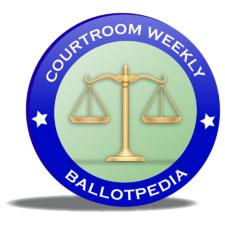| By Jong Son
Judge Robert Peeler of the Warren County Common Pleas Court has seen his share of defendants in his courtroom facing charges for petty crimes in connection to their heroin addictions. This year, he has already seen three such defendants who, after their release from jail, died from a heroin overdose.[10]
To address this plight, Judge Peeler has decided to try a controversial method to keep criminally charged heroin addicts drug free. These defendants would receive a series of shots of Vivitrol, a drug that is used to block receptors in the brain and prevent a person from feeling the effects of heroin.[11]
Vivitrol is the extended-release formulation of the drug naltrexone, and is widely used in clinical settings to help both alcoholics and heroin addicts control their cravings and reduce relapse. Vivitrol was approved by the U.S. Food and Drug Administration (FDA) for the treatment of alcohol dependence in 2006 and approved in its injectable form for opioid addictions in 2010.[12]
Judge Peeler’s method of providing drug treatment to prisoners is being studied in several prisons and drug rehabilitation centers around the nation. However, this method is also sparking controversy, mostly due to the cost of the treatment. Vivitrol is administered as a shot once every month, each injection costing about $1,100.[11] Since inmates lose their Medicaid benefits once they are incarcerated, the county is responsible for providing them with healthcare, shifting the financial burden from federal to local jurisdictions. Recently freed prisoners, though, can end up in a limbo where they’re no longer covered through prison, but may have to wait several weeks to re-enroll in Medicaid. If inmates receive their first shot in prison prior to release, this allows them a month’s time—that is, until the next scheduled treatment—to obtain Medicaid benefits that will cover the rest of their injections, as well as set up counselors and other addiction treatment resources. It also means that the county picks up the tab. Warren County Sheriff Larry Sims has called this a waste of taxpayer money.[10]
To date, $7.5 million has been spent to run the Warren County jail this year, and an estimated 20 percent of the prison population is composed of heroin users. Warren County Commissioner Dave Young has provided his take on Judge Peeler’s actions, stating:
| “
|
In the big picture, I'm always willing to listen to spending some money now to save more money later. I am a fan of trying to get the addicts off of the drugs. If they come back and say we're going to spend $100,000 and all of a sudden we have only 25 percent of the people that this is going to work on and that's going to save us only $15,000 or $20,000 in jail costs, then no.[10][5]
|
”
|
Critics point to a 2011 pilot program in which inmates were given Vivitrol to treat heroin addiction that yielded only a 25 percent success rate. Judge Wheeler remains positive, however, explaining that:
| “
|
There's a real misperception about whether or not [opiate addiction] is truly a disease. People do not like the symptoms, and they think these people are just voluntarily destroying themselves through their own free will. But the destruction is a symptom of the disease they have.[10][5]
|
”
|
Inmates who complete their series of treatments and remain drug free during three years of probation may have their felony charge dismissed.[10] |





